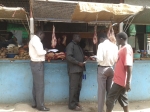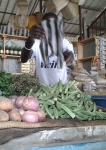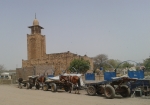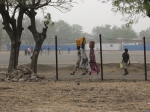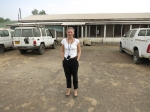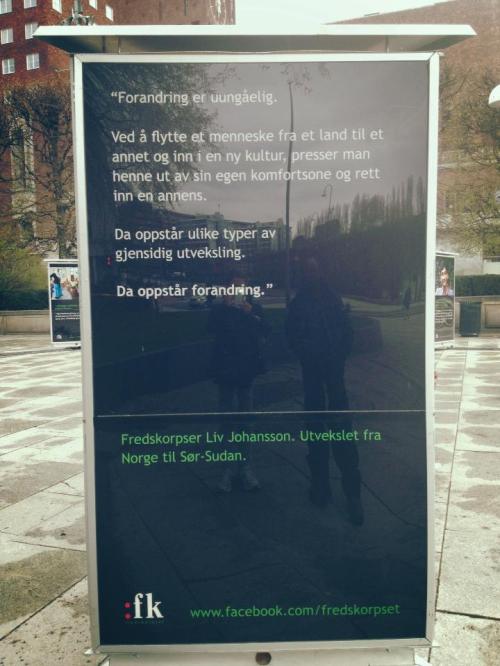Between Konyo Konyo market and an expat bar called Bedouin there’s a big and green open area. When you come close you realize it’s not just any open area. It’s a graveyard. Partly hidden by bushes, trees and grass you can see the tombstones. While walking along it you’ll soon notice the large amounts of rubbish. You’ll see more tombstones showing under piles of plastic bags and bottles. Keep walking and you’ll see children searching through the garbage piles looking for something they can use. Outside of Bedouin there’s sign that says “No parking in graveyard”. At least it makes people aware of it so that they respectfully can park their Land Cruisers beside the graves, and not on top of them, when going for a drink.
If you continue past Bedouin you’ll soon learn that the graveyard is also a home to some people. On top of the graves, between the tombstones, people have settled down and built small sheds of whatever they could find; iron sheet, cloth, grass, bamboo. Women, men, children and old people are all living in the graveyard.
Yesterday I drove past it and watched the settlers from my car window. Normally they are leading their normal life. They’re having tea, carrying water and children are playing, waving at you and shouting “Morning! How are you?”. But not yesterday. They were standing in groups, quietly, without talking and two men were digging a hole not far from their sheds. I wondered why they were digging and wished to myself that it wasn’t another grave.
It was a grave. I drove past the same place today, saw a small heap of dirt with decoration on top of it and a woman kneeling next to it, head down, crying. As I looked around I noticed more and more piles of dirt. Larger and smaller grave looking piles all facing the same direction. Women, men, children and old people are also dying in the same graveyard.
Some might say that children dying in South Sudan is so common that this child was just a number in the statistics. The sad reality is that this child didn’t even make it to become just a number. She or he was born, lived and died outside of a refugee camp, outside of a hospital or any other place where she or he would have been counted for and received help. And what is statistics if we cannot catch all of this; add one tragedy to other meaningless deaths and use that sum to calculate the needs of this country. Today, my job feels far away from reality and little relevant in this environment.
Sometimes I get overwhelmed by South Sudan. It blocks my mind and I lose my words. This is one of those moments. I don’t know what more to write.
